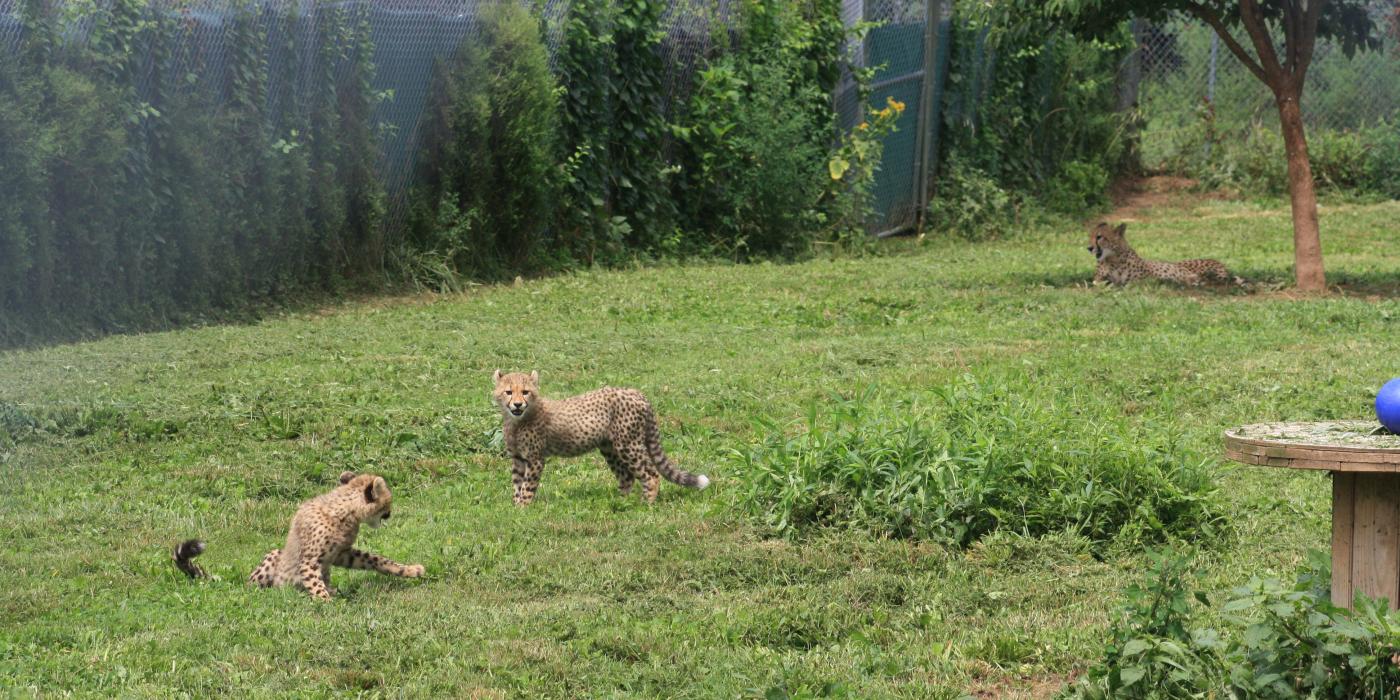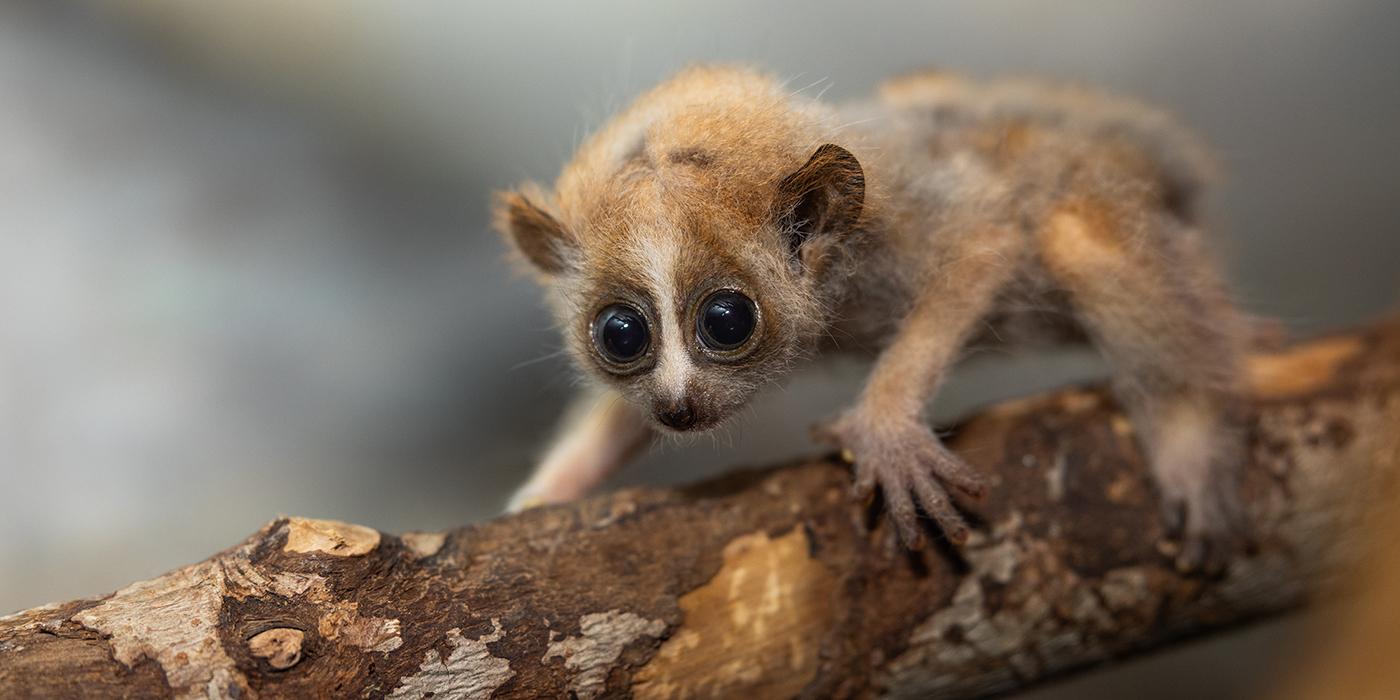Cheetah Cubdate #11: Building Relationships
It is hard to believe that cheetah cubs Amabala, Jabari, Hasani and Erindi are already four months old! As the cubs grow, we want to ensure that they have a strong relationship with us. One way that we work to build their trust in their keepers is through husbandry training sessions. Not only does this practice help us monitor the cubs’ health, it makes future exams less stressful for them and reduces the need to anesthetize them for routine exams.
On our cue, the cubs can climb upon a scale so we can obtain their weights and ensure they are making good gains. While they are standing still, we can also check their body parts for any cuts, scrapes or injuries that may require veterinary attention. As the cubs get older, they will master other behaviors, too. Currently, we are working toward maintaining their shave marks and administering flea and tick medications. Eventually, the cubs will be trained to sit for vaccines and blood draws.
Each of these training sessions is voluntary—the cubs choose whether they want to participate or not. This is called positive reinforcement training. The cubs are always free to walk away, but we do give them an incentive to participate: a favorite food!
As a reward for standing still during their weigh-ins, the cubs receive beef blood from a squeeze bottle. They took to this quickly and seem to enjoy it! Their progress with this training has been steadily improving. As an added bonus, it helps them be more comfortable and relaxed around us when we are in close proximity to them.
Love cheetahs? Learn what it takes to care for these fascinating felines in our new mobile app, Zoo Guardians!
Related Species:



